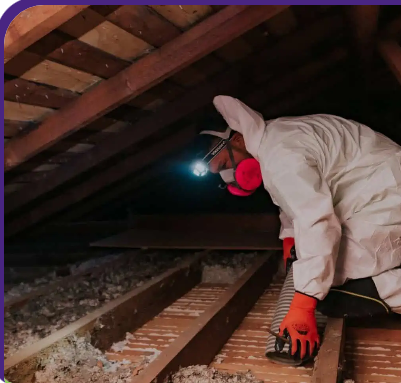Insulation is incredibly crucial for making your home more comfortable and using less energy. Many individuals who own homes think that putting up insulation is straightforward, but it's not. Many tools and methods remain secret, leaving you unaware of how to save money and enhance your comfort. You may save money and keep your home in good repair by learning what home insulation contractors don't usually tell you. This kind of information can help you avoid costly mistakes and make your home last longer.
Hidden Costs Often Avoided by Insulation Experts
When you hire a contractor, they don't always tell you how much insulation will cost in the long term. The cost of installation may appear reasonable at first, but there are hidden costs that can pile up over time, like maintenance, repairs, and replacing broken parts. Many people don't learn about this cost until a few years later, when their energy bills are still high or their insulation is starting to wear out.
You might also pick insulation based on how much it costs initially, not how effectively it performs over time. Using cheaper materials can help you save money in the short term, but you may have to replace them more often. Buying high-quality products today may cost more at first, but it can save you money in the long run. You might be able to find a better and cheaper choice if you look attentively at how long different types of insulation last.
Lastly, some contractors might not bring up energy rebates or government incentives. Knowing if supplies are eligible for tax credits or refunds is vital since it might save you a lot of money. But they don't normally say this the first time you meet them. You can save money and make your home more energy-efficient by taking advantage of these chances.
Energy Efficiency Secrets They Rarely Disclose
A giant secret is that insulation performs better or worse depending on how effectively it is installed. Even if the insulation is excellent, it won't work properly if there are cracks, it gets compressed, or air leaks. This is where professional skill is really vital, yet many contractors rush installations to save time, which causes difficulties that aren't obvious.
Many people don't know that the type of insulation is more significant than how thick it is. For example, spray foam insulation is better at keeping air out than batt insulation, but it costs more and isn't as often suggested. When you know these things, you can make informed choices instead of just doing what everyone else does.
Another tactic that doesn't get spoken about very much is how ventilation impacts things. For your insulation to function effectively, your attic or basement must have excellent airflow and ventilation. If you don't pay attention to this, mold can grow, moisture can build up, and things won't work as well. Reliable Attic insulation contractors think about these topics, even if they don't always go into great detail about them.
Material Quality Tricks You Should Recognize
People that hire contractors don't normally talk a lot about how excellent the materials are. Two things may look the same, but their density, heat resistance, and fire resistance can make a major difference in how effectively they perform. Good insulation will give you peace of mind, cut your energy expenses, and keep your home safe for a long time.
Some insulation contractors may not know how important it is to utilize products that are safe for the environment. This information is highly significant if you are sensitive to chemicals or want to help the environment. Cellulose and recycled denim are two materials that help keep the heat in and the air inside clean.
You should also know the insulation's R-value. R-values in marketing brochures might sound higher than they really are, which makes things look better than they are. You may make better decisions and avoid paying too much for little benefits if you conduct your research and ask for accurate product information.
Which Attic Installation Problems Experts Often Conceal?
Insulating an attic isn’t straightforward. Often, issues only appear after damage builds up—like uneven coverage leaving cold or hot spots. Months later, people still wonder why their energy bills keep climbing. Adding insulation to layers that weren't put together correctly can make things worse. Adding new insulation over wet, moldy, or compressed material can trap moisture and worsen issues. It’s very significant to remove and inspect existing insulation first. Many DIYers skip sealing gaps and vents, but even the best attic insulation fails if air keeps leaking, making proper preparation crucial for long-lasting results.
Conclusion
Hence, you can make better choices about how to insulate your home if you know these tips. Use the right materials, make sure there is enough air movement, and keep an eye on how well the building holds up over time to protect your investment and make it more pleasant all year long. If you’re thinking about insulating your attic, Attic Pros has you covered. They don’t simply throw insulation into walls—they actually get how it behaves over the long haul. Using top-notch materials and focusing on the small, easy-to-overlook details, they make homes that remain comfortable, efficient, and reliable for years.
